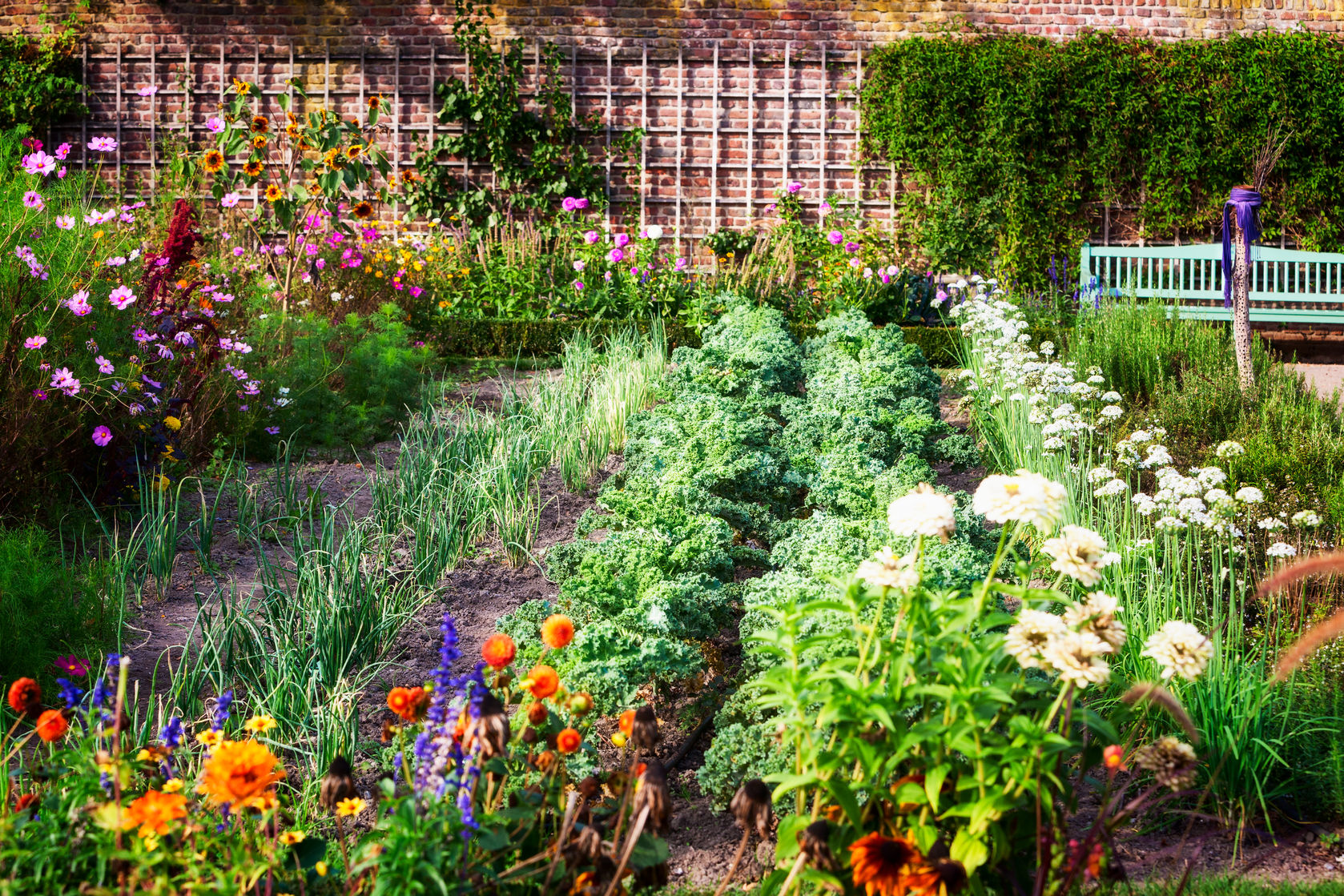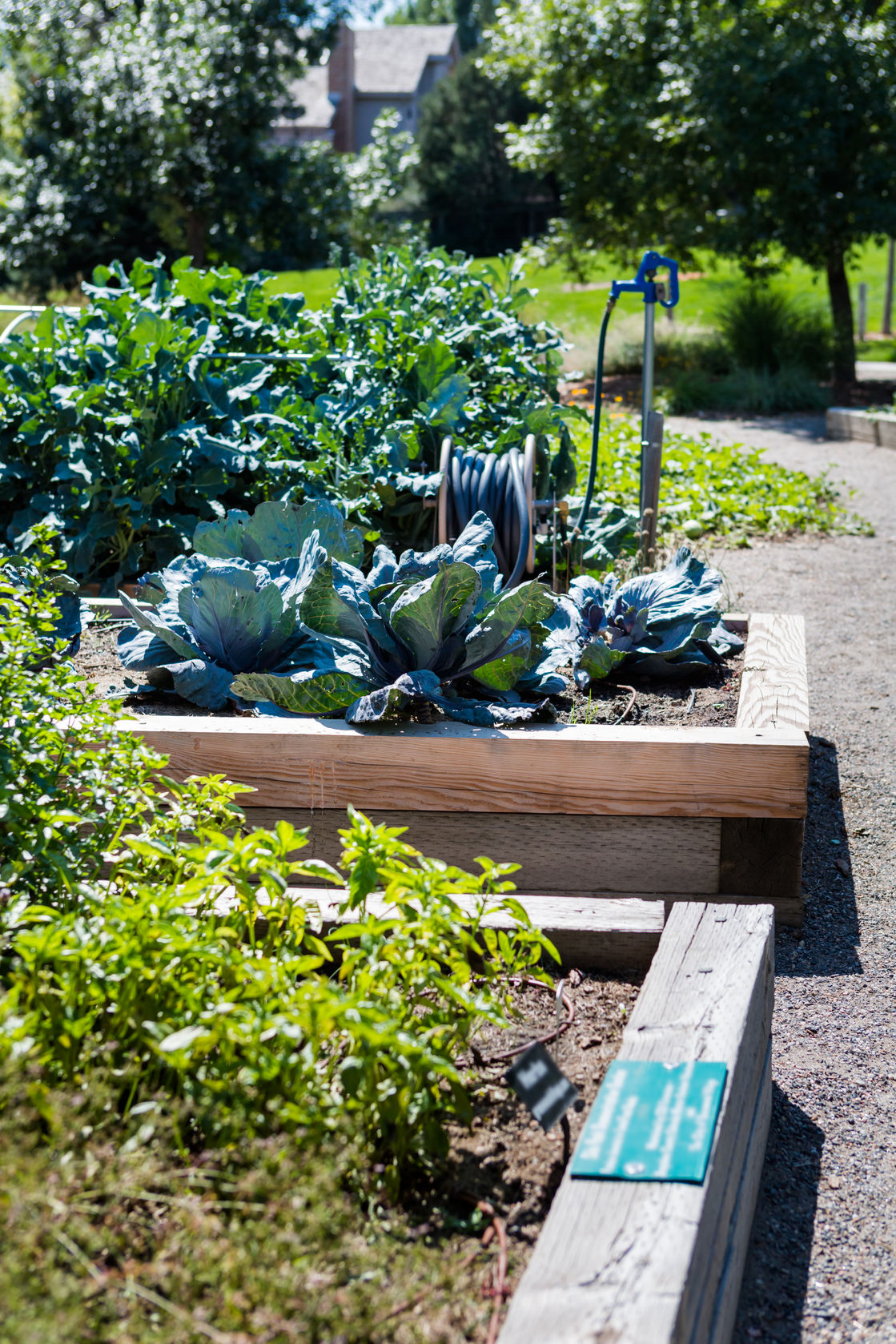 Back to the Be Inspired Blog
Back to the Be Inspired Blog

How to Grow A Delicious and Healthy Organic Garden
Last week we wrote about the incredible, tasty benefits of growing your own fruit trees and offered tips on how to plant your own. As the doctors say, you need to eat your fruit and veggies - we’re here to teach you how to grow your own organic garden.
Why an Organic Garden?
Not only do growing your own vegetables just taste better, but by growing organic crops you can also be certain there aren’t any unwanted chemicals or pesticides in your food.
Here are a few reasons to plant your own organic vegetables from Grow A Good Life to give you even more of an incentive:
- Reduction in Food Waste
We waste so much food in America and often in our own households. How many times have you purchased tomatoes or a few extra apples at the store only to find them weeks later worse for the wear?
Even if you grow a small organic garden, you can control how much you produce and how much you and your family needs; it will also save you a few extra trips to the grocery store.
- Healthier Eating
When you grow your own food, you can literally eat the fruits (and vegetables) of your labor. As Grow A Good Life states, “Fruits and vegetables that ripen naturally in the garden and are consumed within days of harvest have more nutrients than store-bought vegetables. Most of the vegetables that line the grocery store produce section are picked early, shipped to warehouses, distributed to the stores and stay in storage or on a shelf for a while until you purchase them. Over time, the nutritional value of fruits and vegetables declines. Not only do freshly picked fruits and vegetables taste better, but they also have a higher nutritional value.”
Who wouldn’t want to eat the most nutritional fruit or vegetable possible?
An Organic Garden vs. A Conventional Garden
Some may not see the differences between organic and conventional gardening or even understand them. It comes down to the way we grow agricultural products.
Growing plants organically means the methods used encourage soil and water conservation, and reduce pollution of the air, soil and groundwater. An organic garden doesn't use conventional methods to fertilize or control weeds.
Instead of using synthetic chemicals that are petroleum based, contaminate groundwater and destroy essential soil bacteria by depositing high levels of salts, organic gardening relies on crop rotation, natural insect or bird predators, traps, manure-based fertilizers, mulches and naturally derived weed killers to keep pests and weeds at bay, resulting in healthier produce for you and your family. This is especially important given that conventional practices using chemicals result in bioaccumulation, causing sensitivities and often illness in babies, toddlers and the elderly.
Conventional gardening practices use chemical fertilizers to promote plant growth, synthetic pesticides to kill insect life on or near plants and synthetic herbicides to kill weeds. Synthetic chemicals are convenient, less labor intensive and yield faster results, but require more frequent applications because they destroy soil health, leaving the plants to rely solely on the chemical supplements for sustenance.
How to Grow Your Own Organic Garden
There are many ways to successfully grow your very own organic garden. You can grow it directly in the ground, in raised vegetable garden beds, or you may choose to grow a container vegetable garden on your balcony or patio. While growing an indoor garden is often best suited to herbs, under the right conditions other small vegetables may also be grown indoors.
Keep reading for tips to growing your organic garden, what to plant together and more.
Getting Started
Choose your garden’s location based on sun, shade, convenience or visual emphasis.
Whether planting in the ground, creating a raised vegetable garden, or starting a container vegetable garden, you will need to make sure you have the right soil. Buy a potting soil designed for the type of garden you are growing and the area it will grow in. SummerWinds Nursery sells a number of ready to use soils, or you can amend existing poor soil in preparation for planting.
Planning Your Organic Garden
- Plant compatible vegetables and herbs (details below).
- Understand the growing conditions required by the vegetables you choose to grow.
- Decide if your vegetables will do best in the ground, in a raised vegetable garden outdoors or in a more versatile container vegetable garden.
- In general, place taller plants (for example sunflowers) in the back of the garden and then work your way forward with smaller plants. Plant the taller plants in the early spring so they progressively shade other plants as they grow.
Soil Preparation
SummerWinds Nursery offers a wide variety of soils, amendments and fertilizers to help ensure your success.
- Apply a layer of organic matter 2 to 3 inches thick in the garden area.
- Work it into the top 10 to 12 inches of soil.
- Before planting, apply a fertilizer such as E.B. Stone Organics - Sure Start.
- Water the fertilizer in until it settles.
Companion Plants: What to Plant Together?
Friends:
- Beans, beets, broccoli, carrot, celery, corn, cucumber, eggplant, peas, potatoes, cauliflower, radish, strawberries, melons/squash.
- Lettuce, cabbage, Brussels sprouts, cauliflower, radishes, chard, turnips, beets, carrots, cucumbers, onions, strawberries, celery.
- Tomatoes, eggplant, okra, beans, peppers, lettuce, asparagus, beans, carrots, cucumbers, onions, basil, mint, borage, marigolds.
- Spinach gets along with all vegetables, but benefits from proximity to strawberries and taller veggies that provide shade.
- Strawberries stunt the growth of cabbage family vegetables.
Guardians:
- Mint repels ants, white cabbage moths, aphids, flea beetles.
- Garlic discourages aphids, fleas, Japanese beetles, spider mites.
- Perennial chives repel aphids, spider mites.
- Basil drives away flies, mosquitoes.
- Marigolds deter Mexican bean beetles, squash bugs, thrips, tomato hornworms, whiteflies and harmful root knot nematodes.
- Borage deters tomato hornworm. It’s good for strawberries & squash.
- Rosemary and sage repel cabbage moths, bean beetles, carrot flies.
- Nasturtium keeps away potato bugs, squash bugs, and whiteflies.
- Artemisia (Wormwood) deters slugs.
- Radishes discourage cucumber beetles, squash bugs, stink bugs.
- Geraniums may help keep flies away.
Weed Control
Weed prevention is key to growing a successful organic garden! How can you do it without relying on dangerous chemicals?
- Corn Gluten: Corn gluten meal is a byproduct of corn processing that has historically been used as an animal feed. It can also be used as an organic herbicide. Timing is key.
- Pulling Weeds: Pull weeds as you see them. Don't let them get big and go to seed.
- Mulching: Use coffee grounds, coco shells and red cedar bark as mulch.
Do you already have weeds? To kill weeds, we recommend Bonide - BurnOut
Pest Control
Pests can often be controlled through the use of companion plants or organic solutions.
Companion Planting for Pest Control:
-
- Using companion plants naturally lowers pest problems in the garden without chemical intervention.
- Plants such as chives, garlic, onions and other select herbs produce offensive chemicals or smells that repel insects and disease.
- Ornamental onion plants, known as alliums, attract beneficial pollinators such as butterflies and bees.
- Insects such as ladybugs, praying mantis, spiders, wasps and several species of flies are beneficial to the garden.
- The small flowers of carrots, dill, parsley and coriander have strong fragrances that attract these beneficial insects.
Organic Pest Controls:
-
- Bacillus thuringiensis (Bt) – in all its forms (products) works well on worms and caterpillars.
- Captain Jack’s Deadbug Brew™ – for prevention (and killing) of bagworms, beetles, borers, caterpillars, thrips and more.
- Neem Oil – for use on aphids, etc. Apply in spring and fall.
- Pyrethrin – for use on aphids, etc. Apply in summer.
Growing an Organic Container Garden
 If you don’t have much space or even a backyard, but you would like to grow some organic vegetables in your home or apartment, here are some tips from SummerWinds:
If you don’t have much space or even a backyard, but you would like to grow some organic vegetables in your home or apartment, here are some tips from SummerWinds:
Location: Planning the location for your garden is the first and most important step. You can always make do with the space you have, which is why planning your location is key. It’s a general rule of green thumb to choose a spot that will get at least 6 hours of sunlight. While some herbs will do well with less than 6 hours of sunlight, most plants need at least that, if not more.
Water: Watering is so important for successfully growing your container garden. There are many different options for watering, such as self-watering planters, Oya pots, watering timers, drip irrigation, or the good old-fashioned hand watering method. It is really a matter of what works best with your schedule and the needs of your plant selections. You will absolutely want to make sure you have a plan in place for ensuring your plants get properly watered.
Growing Your Own Organic Garden
There are so many benefits to growing your own organic garden including better nutrition, taste, safety and limiting waste. Whether you’re growing in the ground, raised bed or container, use our helpful tips for success.
Do you still have questions on growing an organic garden? Visit your local SummerWinds Nursery to talk to one of your garden experts today! Our garden coaches are also happy to meet with you to help you plant and grow a flourishing garden.

